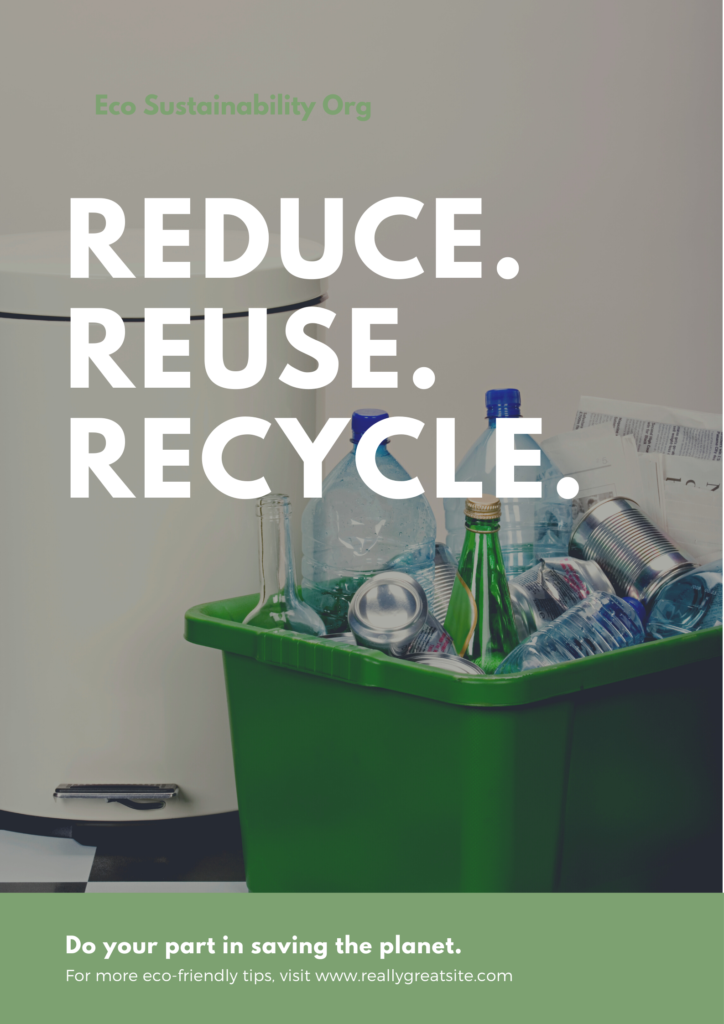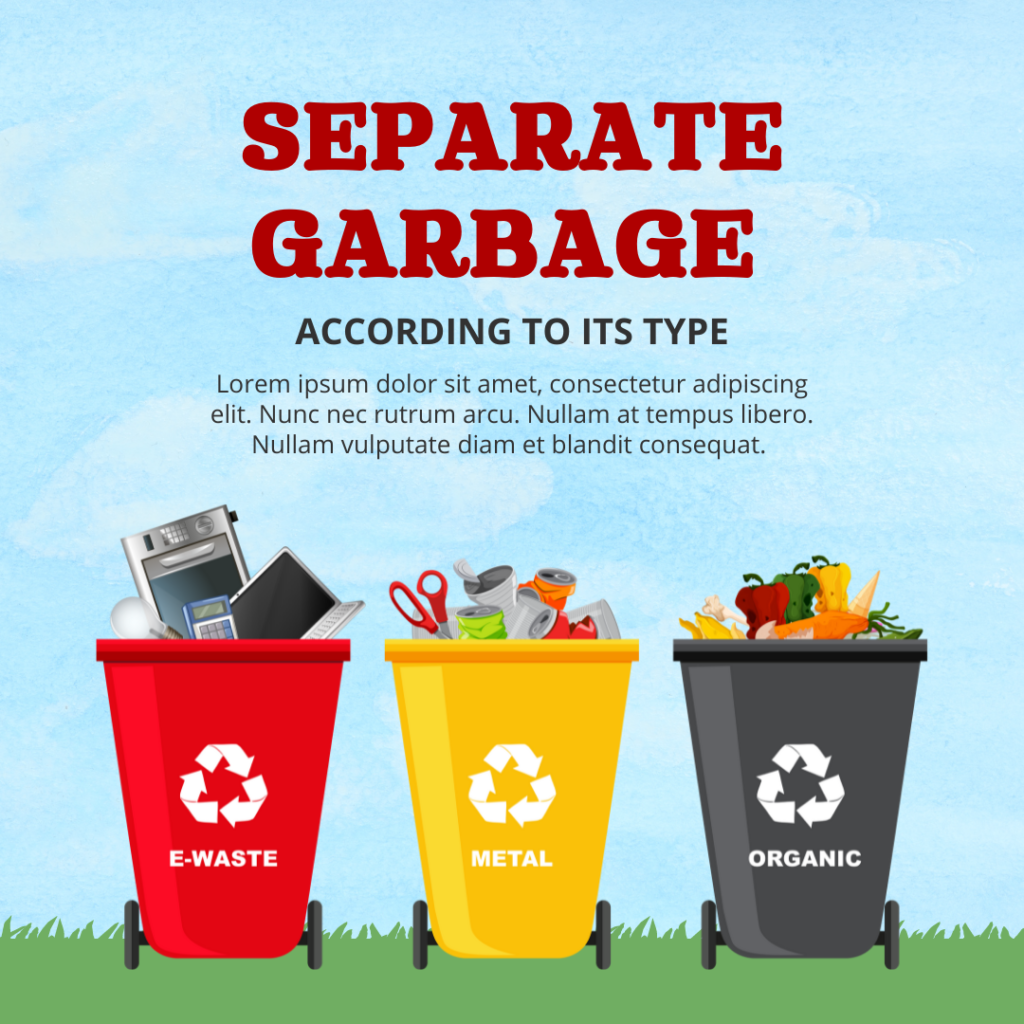
What does recycling mean?
Recycling is the process of collecting and processing materials that would otherwise be thrown away as trash and turning them into new products. Recycling can benefit your community and the environment by conserving natural resources, reducing greenhouse gas emissions, and saving money. Click here to know more about the global recycling standard.

What are the 3 types of recycling?
There are three main types of recycling: mechanical, energy and chemical. Every single type is subdivided into minor categories, but understanding them gives us a better idea of how the world processes most of its recyclables. Mechanical recycling uses machines to sort and break down unwanted materials. The resulting scraps are then reprocessed by other machines that can handle products like glass bottles, aluminum cans, paperboard boxes and plastic containers

What are the environmental benefits of recycling
Recycling is a smart way to reduce your environmental footprint. Whether you’re putting your glass, plastic and paper into containers or reducing waste at home, recycling can help conserve energy, reduce air and water pollution from manufacturing new materials, reduce greenhouse gases, conserve natural resources and save money on your utility bills.
What are 5 items that can be recycled?
Items that can be recycled in your yellow lid bin:
• Paper: office paper, magazines, newspapers, and junk mail.
• Cardboard.
• Green, clear and brown glass bottles and jars.
• Juice and milk cartons.
• All hard plastic bottles and containers marked, but no lids, please.
• Steel (tin) and aluminum cans and empty aerosols/
How recycling is done?
Recycling is the process of collecting and processing materials for reuse. Recyclable materials are usually collected in individual bins and delivered to a center where they are sorted, cleaned, and reprocessed into new materials for manufacturing new products.
How does recycling help our environment?
The environmental benefits of recycling are numerous, from reducing the emissions and water pollutants created during the production, to saving energy. By re-using recovered materials rather than extracting raw materials from their natural environment, we can significantly reduce our waste output. Recycling also helps to reduce pollution caused by the extraction and processing of virgin materials.
What are the four main types of recycling?
Waste Paper and Cardboard. Recycling paper is vital to ensure you reduce your environmental impact and to reduce unnecessary general waste. …
• Plastic Recycling. …
• Metal Recycling. …
• WEEE Recycling (Electronic Devices) …
• Wood Recycling. …
• Glass Recycling. …
• Clothing and Textile. …
• Bricks and Inert Waste Recycling./
Why is recycling important facts?
Recycling has many benefits to the environment and local communities. The EPA estimates that over 80% of our solid waste is recyclable, but less than 35% of it is recycled. Households are the largest source of contamination in recycling facilities since they mix contaminated materials with their recyclables . Recycling TTYL Bags have a unique design which allows them to be used as trash receptacles for the other garbage in your home so that there is a clear separation between garbage and recyclable materials.
How do you recycle at home?
Here are some simple tips to recycle more effectively at home:
- Flatten cardboard boxes so that you can fit more recyclables into your bin.
- All plastic bottles can be recycled, from water bottles to salad dressing, so put all of them in your recycling container.
- It is not just newspapers that you can recycle at home.
Why recycling saves the Earth?
Recycling can help reduce the quantities of solid waste deposited in landfills, which have become increasingly expensive. Recycling also reduces pollution of air, water, and land due to disposal of waste.
What will happen if we don’t recycle?
Recycling metal is an important part of being a responsible human. If we do not recycle metal, then the material is considered garbage and is generally buried in a landfill to rot or, in some cases, be burned. This can damage the environment greatly as it creates an unwanted and unhealthy build-up of old materials.
Why is it important to reduce reuse and recycle?
Reducing, reusing and recycling waste helps save landfill space by keeping useful materials out. At the same time, it reduces the amount of energy and natural resources needed to produce or collect the raw materials and manufacture the product.
How do you manage waste?
To manage your waste you first need to … Measuring your waste can be as simple as keeping a food diary for a week. … Reducing the amount of waste you produce will also help. It is possible to reduce the amount of waste going to landfills by:… Recycling is also a great option for businesses. Find out what options are available locally for business recycling and consider separating up any other waste that can be recycled… You may need to employ collection services for certain objects and materials, but this is often well worth it as it means less expense on your part and fewer problems with hygiene or safety concerns. Read Zero Waste as well.
How can you recycle plastic?
Recycling plastic can be a difficult process, but it is one that you can make much easier. The first step is to collect all of your used plastics and sort them into categories. This will allow you to identify the different types of plastic that you have, which will make it easier to determine how each can be recycled. After sorting your plastics, you must wash them in order to remove any dirt or other impurities that might potentially hinder their recycling process. Next, you must shred them into smaller pieces by using a crusher or grinder so as to be able to further sort and process them effectively. For example, if they are shredded into smaller pieces, they can be washed more efficiently and easily than if they were left intact…
How does recycling affect humans?
Recycling reduces the health risks of disease and birth defects associated with landfills and incinerators. It also has a positive impact on our personal health, as it recycles materials that can be used to manufacture products like paper, glass and plastic, which otherwise would go to waste. In addition, recycling helps us preserve the earth’s resources for future generations.
How does recycling affect our planet?
Recycling has a positive and essential impact on our planet. Reusing materials conserves the Earth’s finite resources by cutting down on the need to grow, harvest or mine more raw materials that would otherwise cause harm to people or the environment.
How can you recycle paper?
There are 5 ways that you can recycle paper. Use old newspapers to clean windows. Use it as mulch or compost. Use it as packing material. Use it as wrapping paper. Use it as shelf liner or organiser.
How do you recycle metal?
Bring your scrap metal to local scrap yards for cash payments. Scrap metal that can be recycled and re-purposed can be reused in a variety of different industries. For example, scrap metal and aluminum metals are used in construction for bridges and roads.
How can we recycle glass?
To recycle glass, the broken pieces of glass are crushed, sorted and cleaned. The clean glasses are then mixed with other raw materials like soda ash and sand. The raw materials and glasses are melted in a furnace and shaped into moulds to make new bottles of different colours and sizes.
How do you recycle plastic bags?
To recycle plastic grocery bags, wraps, and films, take them to a local retail store that accepts the How2Recycle Store Drop-Off label. The store will collect these bags and other polyethylene film products for recycling, rather than sending them to landfills.
How can you recycle cardboard?
To recycle cardboard materials, collect the empty boxes you have lying around your house and take them with you to the big blue bin or local businesses like grocery stores. As long as your cardboard and paperboard is clean and dry, it should be placed in your recycle bin. Wet or greasy cardboard like pizza boxes or fast food boxes are considered a contaminate and belong in the garbage. Wet or contaminated items can jam sorting equipment and ruin good, clean material.
Can food be recycled?
Not only can food waste be used for composting, some vegetables have the strong ability to regrow, as long as they’re handled properly that is. With the right amount of water, enough sunlight as well as time and some patience, you can create your own little vegetable patch at home
Is paper can be recycled?
Yes paper can be recycled.
Are glass bottles recyclable?
Yes, glass bottles and jars are recyclable. With proper collection programs in place, glass can be recycled endlessly without any loss in purity or quality. In the U.S., 39.6% of beer and soft drink bottles were recovered for recycling in 2018; 39.8% of wine and liquor bottles, and 15.0% of food and other glass jars were recycled in the same year (source: EPA).
Can you recycle paper towels?
The above can be recycled as food waste but remember not to put soiled paper towels in your food waste recycling. Soiled paper towels are contaminated and only suitable for food waste – not paper recycling.
How much does recycling save the environment?
Recycling is one of the easiest ways for people to help save the environment. Recycling saves energy and reduces pollution. For example, it is estimated that “recycling aluminum saves 90% to 95% of the energy needed to make aluminum from bauxite ore.” Recycling saves energy because recycled materials don’t require factories to expend so much greenhouse gas emissions than they would if they had created the same item again from scratch. Click here to know how to become Grs certified (Global recycling standard).
What happens when plastic is not recycled?
If plastic is not recycled, it can cause big problems for our environment. First, if it ends up in a landfill, the plastic may be buried underneath tons of trash. Over time, the harmful toxic chemicals are leached into the ground and find their way into drinking water supplies, rivers, streams and eventually into our oceans.
Can clothes be recycled?
A good 80 percent of textiles thrown out can be recycled and used again. In fact, less than 5 percent of all the clothes that we throw away is actually wasted. By purchasing recycled clothing, you are not only helping to reduce the amount of clothing going to landfill but also reducing pollution caused by manufacturing new clothes. Clothes maketh the man.
Can kitchen waste be recycled?
Kitchen waste is recyclable, and can be used in terms of energy production as well. In order to reduce the heat-trapping emissions of landfills, one must be sure to use recycling smartly.
What waste Cannot be recycled?
Whatever you put in your recycling bin – plastic bottles, tin cans and paper – you want to make sure it gets recycled. However, if it is inside a plastic bag, or has takeaway coffee cups, disposable nappies or garden waste in it, unfortunately it can’t be recycled.
How is rubber recycled?
Rubber can be recycled through a number of channels, depending on how you ultimately want to use it. You can choose to donate your rubber to places such as your local recycling facility or a tire retailer. Repurposing your rubber is often an even better option, and it can leave you with new useful items such as a tire swing, jar openers, or planters.
Are toilet paper rolls recyclable?
Special Instructions. Only empty toilet paper rolls and paper towel rolls are recyclable. Toilet paper and paper towels are not recyclable.
Can you recycle Pringle tubes?
Drop off your Pringles tubes in one of our Bring Banks and we’ll do the rest. You’ll find Bring Banks in places like supermarkets and retail centre car parks, household recycling centres and other public places.

